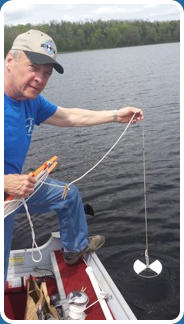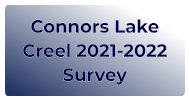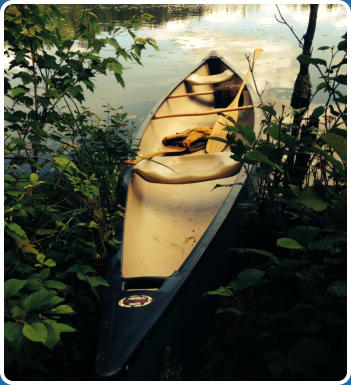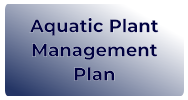
| Bohn Web Design Copyright © 2017 to Present. All rights reserved. | Technical Assistance: Lynne@BohnWebDesign.com |
COMMITTEES
FISHERY
We have an active fish committee that is keeping tabs on our fish population and are also investigating fish
stocking. They keep in contact with the WDNR and inform us about the fish surveys and fyke netting.
AQUATIC PLANT MANAGEMENT
Eurasian water milfoil (EWM) continues to spread in Connors
Lake. Fortunately, no milfoil has been found in Lake of the Pines.
The lake association is in the process of writing and updating a
new aquatic plant management plan for 2024 through 2029. In
this plan, Connors Lake is divided into 3 tolerance zones: zero tolerance, low tolerance,
and mid tolerance.
In 2023, a new 2.5-acre bed of milfoil was found in the west bay closest to the boat
landing. This is in a zero-tolerance zone, which means it needs to be treated as soon as
possible. Arrangements have been made, and this new area will be treated with the
herbicide ProcellaCOR this summer (2024). Another 2.5-acre bed of milfoil has been
discovered in the northeast bay, which is in a low tolerance zone. This area is being
watched to see if it also needs treatment in the near future. A 15-acre milfoil bed, that
was found several years ago in Muskie Bay, continues to grow and spread. This is a mid-
tolerance zone, so no treatment is warranted at this time. This area was treated previously with the herbicide 2-4D.
Milfoil spreads easily; even torn fragments can start a new bed. It is essential that we don’t transfer EWM to other parts of our
two lakes. There are 3 buoys in Muskie Bay to keep boats out of that area. Our Clean Boats/Clean Water Program aims to
prevent milfoil from coming into our lakes and also prevent it from transferring from our lakes to other bodies of water. We
appreciate everyone’s efforts to keep our lakes clean and healthy for all of us to enjoy into the future.
CLEAN BOATS CLEAN WATERS (CBCW)
Remove plants and weeds from boats, personal watercraft, and trailers. These invasive
plants and weeds can easily take over our lakes.
Watch this video to see how boat inspections are done.
CBCW helps to educate boaters and inspect watercraft that are entering and leaving
Connors Lake and Lake of the Pines.
“JUST GIVE US TWO”
Volunteering for CBCW is the front line for our association. This is where we educate boaters about preventing invasive species from entering into our lakes. It is the most important thing we do as an association. If you want to make a big impact on the lakes’ ecosystems, volunteer for TWO HOURS with CBCW. This is one of the easiest and most flexible ways to volunteer. Anytime the lakes are busy, we need volunteers at the landings. If you want to volunteer, see any board member at one of the meetings to explain how to get started. Make a difference, get involved, and GIVE US TWO! If you can volunteer your time, please contact us.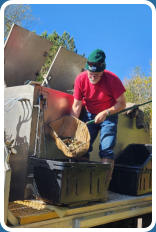
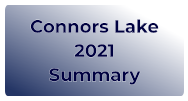
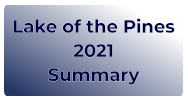
WISCONSIN CITIZENS LAKE MONITORING NETWORK (WCLMN)
The important work of monitoring the water of our two lakes could not be done without volunteers. There is always a need for
more volunteers, especially on Lake of the Pines. For any new volunteers, materials and training are
provided. You choose the dates to sample which are convenient for you.
The data we collect is very important in assessing the health of our lakes and guiding future
management decisions. The following data is collected:
1.
Water clarity
2.
Temperature
3.
Dissolved oxygen (necessary for aquatic life)
4.
Chlorophyll (algae)
5.
Phosphorus (acts as fertilizer for aquatic life)
Generally, both lakes are Mesotrophic (middle-aged) and healthy. We are truly fortunate to be able to use and enjoy two
“gems” like Connors Lake and Lake of the Pines. It is our responsibility to protect them.
All data collected is uploaded to the WI NDR website. If you are interested in reviewing past data, visit the WI DNR CLMN
website.
1.
Scroll down to Graphs & Data by County; click on the + sign
2.
Click Sawyer County
3.
Find either Connors Lake or Lake of The Pines
4.
Click on Details
5.
The lake you chose will appear at the top of the screen
a.
Review the WEx Quick Tips before the next step
b.
Click the blue tab: Open the “Water Explorer” (WEx)
6.
You will be brought to a screen with data for the lake you selected, (this may take a few minutes to completely load)
a.
Be sure you are on the Overview tab to view summarized data and scroll down to view all data available
b.
View the other tabs and reports available on the screen for additional data

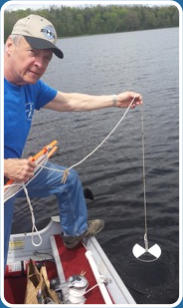


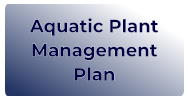
COMMITTEES
FISHERY
We have an active fish
committee that is keeping
tabs on our fish population
and are also investigating
fish stocking. They keep in
contact with the WDNR and
inform us about the fish
surveys and fyke netting.
AQUATIC PLANT MANAGEMENT
Eurasian water milfoil
(EWM) continues to spread
in Connors Lake.
Fortunately, no milfoil has
been found in Lake of the
Pines. The lake association is in the process of
writing and updating a new aquatic plant
management plan for 2024 through 2029. In this
plan, Connors Lake is divided into 3 tolerance
zones: zero tolerance, low tolerance, and mid
tolerance.
In 2023, a new 2.5-acre bed of milfoil was found in
the west bay closest to the boat landing. This is in
a zero-tolerance zone, which means it needs to be
treated as soon as possible. Arrangements have
been made, and this new area will be treated with
the herbicide ProcellaCOR this summer (2024).
Another 2.5-acre bed of milfoil has been
discovered in the northeast bay, which is in a low
tolerance zone. This area is being watched to see
if it also needs treatment in the near future. A 15-
acre milfoil bed, that was found several years ago
in Muskie Bay, continues to grow and spread. This
is a mid-tolerance zone, so no treatment is
warranted at this time. This area was treated
previously with the herbicide 2-4D.
Milfoil spreads easily; even torn fragments can
start a new bed. It is essential that we don’t
transfer EWM to other parts of our two lakes.
There are 3 buoys in Muskie Bay to keep boats out
of that area. Our Clean Boats/Clean Water
Program aims to prevent milfoil from coming into
our lakes and also prevent it from transferring
from our lakes to other bodies of water. We
appreciate everyone’s efforts to keep our lakes
clean and healthy for all of us to enjoy into the
future.
CLEAN BOATS CLEAN WATERS (CBCW)
Remove plants and weeds from boats, personal
watercraft, and trailers. These invasive plants and
weeds can easily take over our lakes.
Watch this video to see how boat inspections are
done.
CBCW helps to educate boaters and inspect
watercraft that are entering and leaving Connors
Lake and Lake of the Pines.
“JUST GIVE US TWO”
Volunteering for CBCW is the front line for our association. This is where we educate boaters about preventing invasive species from entering into our lakes. It is the most important thing we do as an association. If you want to make a big impact on the lakes’ ecosystems, volunteer for TWO HOURS with CBCW. This is one of the easiest and most flexible ways to volunteer. Anytime the lakes are busy, we need volunteers at the landings. If you want to volunteer, see any board member at one of the meetings to explain how to get started. Make a difference, get involved, and GIVE US TWO! If you can volunteer your time, please contact us.
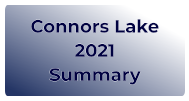
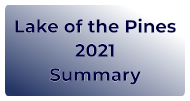
WISCONSIN CITIZENS LAKE MONITORING
NETWORK (WCLMN)
The important work of
monitoring the water of
our two lakes could not be
done without volunteers.
There is always a need for
more volunteers, especially
on Lake of the Pines. For
any new volunteers,
materials and training are
provided. You choose the
dates to sample which are
convenient for you.
The data we collect is very important in assessing
the health of our lakes and guiding future
management decisions. The following data is
collected:
1.
Water clarity
2.
Temperature
3.
Dissolved oxygen (necessary for aquatic life)
4.
Chlorophyll (algae)
5.
Phosphorus (acts as fertilizer for aquatic life)
Generally, both lakes are Mesotrophic (middle-
aged) and healthy. We are truly fortunate to be
able to use and enjoy two “gems” like Connors Lake
and Lake of the Pines. It is our responsibility to
protect them.
All data collected is uploaded to the WI NDR
website. If you are interested in reviewing past
data, visit the WI DNR CLMN website.
1.
Scroll down to Graphs & Data by County;
click on the + sign
2.
Click Sawyer County
3.
Find either Connors Lake or Lake of The Pines
4.
Click on Details
5.
The lake you chose will appear at the top of
the screen
a.
Review the WEx Quick Tips before the
next step
b.
Click the blue tab: Open the “Water
Explorer” (WEx)
6.
You will be brought to a screen with data for
the lake you selected, (this may take a few minutes
to completely load)
a.
Be sure you are on the Overview tab to
view summarized data and scroll down to view
all data available
b.
View the other tabs and reports available
on the screen for additional data

| Bohn Web Design Copyright © 2017 to Present. All rights reserved. |
| Technical Assistance: Lynne@BohnWebDesign.com |
